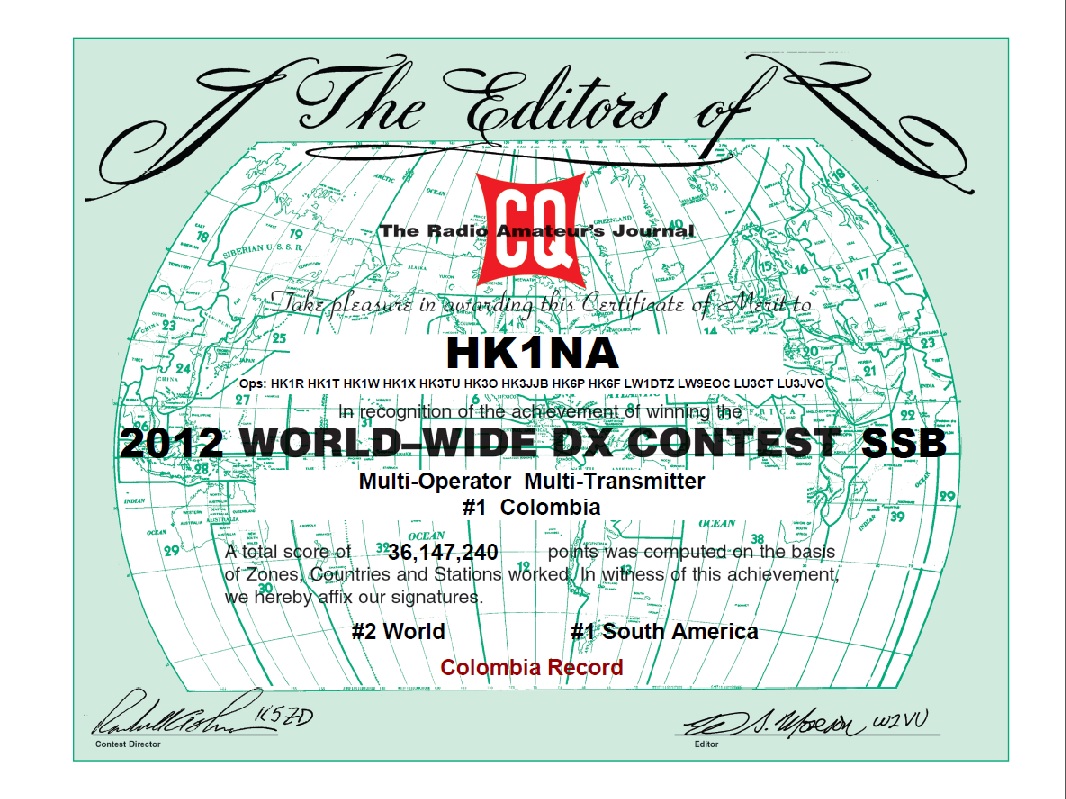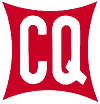We are pleased to announce that the official rules for the 2013 CQ WW DX Contest are now available. The 30 day public comment period produced over 280 emails with very helpful corrections, suggestions, and requests.
Click here to view the new rules.
The CQ WW DX Contest rules have evolved for over 50 years. Changes in technology, operating practices, and enforcement efforts caused the rules to become increasingly complex. In some cases the wording was difficult even for native English speakers to fully understand. The translators were also having trouble with the text. The major goal of the rewrite was to make the rules simpler and easier to understand.
At the same time, we took advantage of this opportunity to remove some categories that had not been attracting much activity. This includes the Team Competition and the Xtreme category. We also added some new Overlay competition categories. The new Classic Overlay category is in direct response to the CQ WW Survey comments that asked for a time limited category. The Rookie category is based on the success this category has had in the CQ WPX Contest for many years.
As one commenter put it, “The rules are evolutionary, not revolutionary.” If true, then we have achieved our goal.
Below are a few general comments and explanations about the new rules.
- The basic information about bands, exchange, and scoring has been moved to the beginning. We wanted everyone to quickly grasp the basics so they could get on the air and join the fun. There is no change to the scoring.
- The entry categories are substantially unchanged. We still have separate Single Operator and Single Operator Assisted categories for high, low and QRP power levels. The wording for the multi-operator categories has changed, but the definition of the categories is the same.
- Xtreme Contesting and Team Competition categories have been removed. The Xtreme Contesting concept, which only began in 2009, had special rules and a very low number of entries. The Team Competition was not attracting many entries and we decided that we would rather put more effort into promoting the club competition.
- Checklog is now listed as a category. Checklogs are not a competition category, but we wanted to help everyone understand Checklogs and how they are counted. Checklogs are very important in helping us with the log checking.
- A first for CQ WW, there are now two new Overlay categories. The Overlay categories are a second contest within a contest. Entrants receive a score in their traditional entry category and will also have a second score listed in the Overlay results. It is like entering two contests for the price of one!
- The Classic Overlay category is intended for the radio purists who want to participate in the most traditional way. It is one operator, one radio, no outside assistance, and only the first 24 hours of actual operating time (with breaks a minimum of 60 minutes with no QSO) will count for the score. Of course, Classic operators are welcome to operate as much as they want, but only first 24 hours of “on time” will count for the score. It should be interesting to see what the winning strategy of this new competition will be. The traditional single operator categories remain with no time limit.
- The Rookie Overlay category is for anyone who received their first ham radio license within three years of the date of the contest. It’s a great opportunity for new operators to compete with others who are also learning. We have enjoyed watching new operators in the CQ WPX Contest build their skills each year and make significant efforts in their final year of eligibility.
- Award certificates are now being offered to each category winner in every country plus each call area in the USA, Canada, Japan, and Russia. Plaques continue to be offered for categories where they are sponsored.
- The Club Competition rules have been changed to create two separate competitions; one for clubs within the USA and one for clubs in the rest of the world (DX). The concept of a club being defined by a 175 mile circle is well established in the USA, but has not worked so well in other parts of the world where the contesting population is more spread out. The DX club area is now defined as the country where the club is located AND the area within a 275 Km radius of the club’s selected location. For example, the Bavarian Contest club can have members from any part of Germany as well as others that fall within the 275 Km circle around Munich, which may include Austria and Switzerland.
- The general rules define some of the specific requirements that govern all entries. Each entry must use a different callsign, only one signal on a band at a time, etc. Entrants are required to log QSOs as they occur and not edit the log after the contest.
- Log submission instructions are unchanged. We do ask high scoring stations to include exact frequencies in their log. The log deadline remains at five days after the end of the contest.
- The judging section spells out examples that are considered unsportsmanlike conduct, how disqualifications are managed, and the log checking deductions for logging errors. Signals with excessive bandwidth may be considered as being unsportsmanlike and earn disqualification. Red and Yellow cards have been removed in favor of one action – disqualification.
- The declaration section reminds all CQ WW entrants of their responsibility to obey the rules and to accept the decisions of the CQ WW DX Contest Committee.
We are currently working to have the new rules translated into German, French, Spanish, Italian, Portuguese, Japanese, Russian, Chinese, and Arabic. If you would like to help with translation into other languages please send an email to questions@cqww.com.
The frequently asked questions (FAQ) page [http://cqww.com/rules_faq.htm] will be expanded to answer the most common questions about the new rules. The interpretations on the FAQ page explain how we will be judging the new rules so everyone is encouraged to read this page carefully.
Thanks to everyone who provided input or feedback into the rule change process.
We look forward to another record year of entries, fun, and excitement in the CQ WW DX Contest. Please read the new rules carefully before the contest and have fun!

